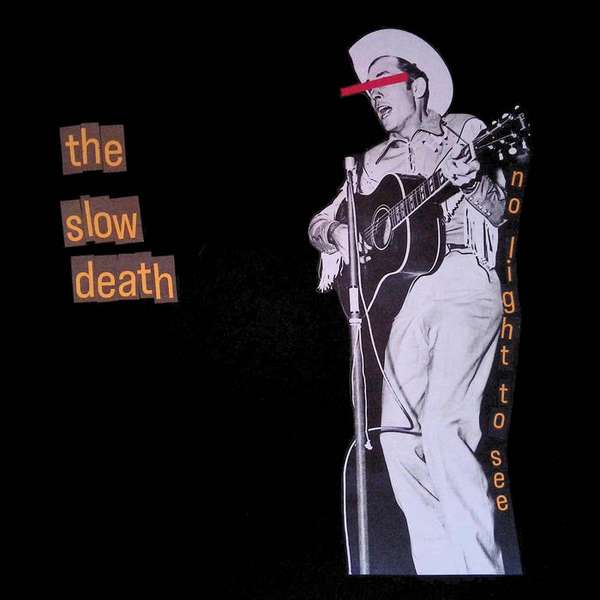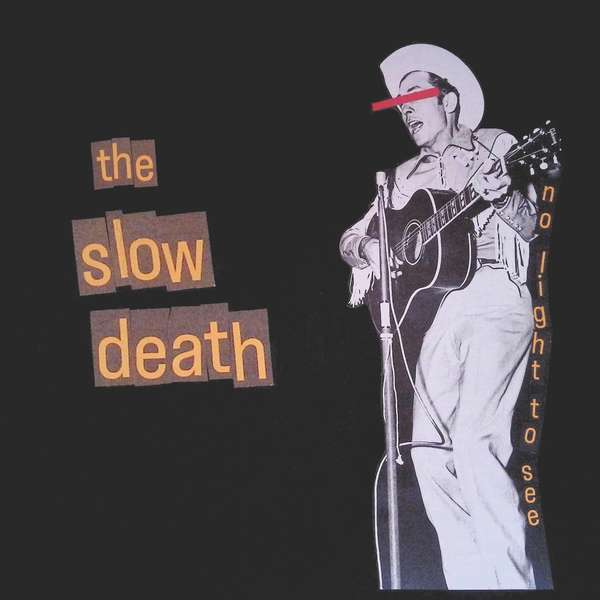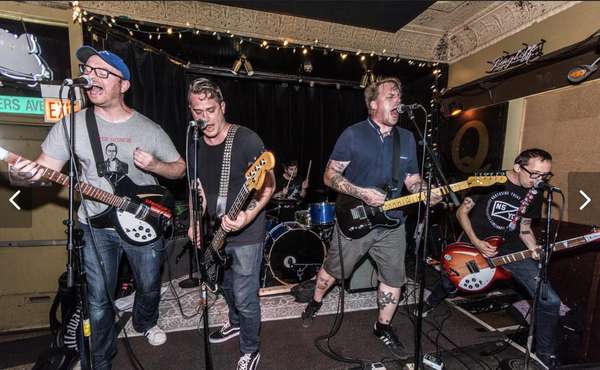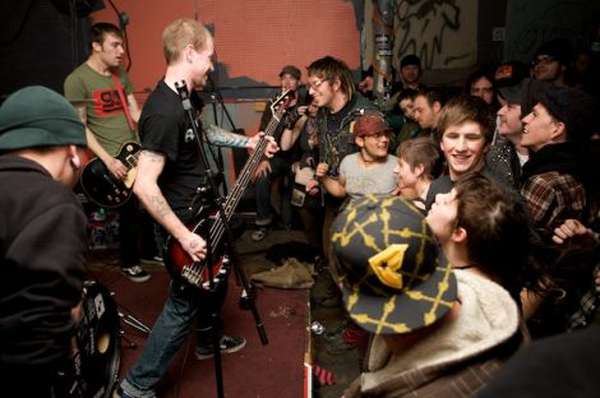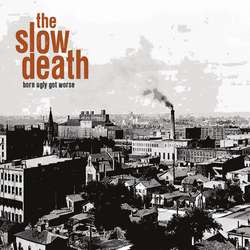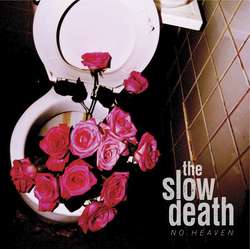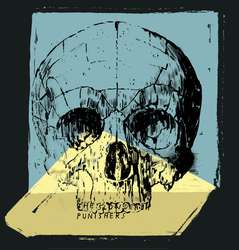Few bands have as fitting a name as The Slow Death. They play forlorn, self-deprecating punk that’s heavily influenced by lonesome country. The music itself is more driving and punchy, but many of the lyrics would fit just well in a somber old-timey country ballad. It’s forceful music that punches inward instead of at The Man. The first song is titled “Desperately.” The last song is titled “Hard Time.” Guess what’s in between?
They’ve been at it for 15+ years, led by Jesse Thorson with a rotating supporting case. While Thorson’s songwriting style has remained consistent from his other projects, namely Pretty Boy Thorson and & Falling Angels, the sound with this band is more guitar driven and, generally speaking, a-rockin’. The music is driving and loud, sometimes with organ, but the tones are kinda dark and bleak.
I think “Obvious” is a good example of the sound. The lyrics are first person and blunt: shouted to an empty room and any casual observers who may be lurking. The beat is stomping, like old school country but with a full electric band and turned up to 11. Thorson’s shouts convey real emotion with grit instead of drama. It’s a fine line to walk with introspective lyrics: here it comes across as authentic and blue collar instead of woe-is-me. Even though most lyrics are reflective, they aren’t all first person, and they often rely on rhetorical internal questions and self-doubts. While they are expressed as questions in his own head, alone, they come across as if shouted from a stage to a room full of swaying bleeding hearts who are in on the misery. “Til The Next Time” is a great example of this, using a rising action to build from gloomy tones to something more cathartic, even if those tones are still super dark. Heck, halfway through, the lyrics just simply ask “Do I think too much?”
For all that talk about forceful rock ‘n’ roll earlier, they aren’t afraid to slow it down when needed. “Hard Time” is a slow song with a big bass drum lead that I’m hesitant to call a ballad because it’s really that pounding rhythm and its dark mood that leads here while, at least to me, a ballad is all about the singer. Then, about two-thirds into the song, it kicks into a crescendo with a gang vocal, cymbal crashing refrain that amplifies the effect -- and brings the album to a close on the poignant line of “You have a hard time waiting on the world to die.”
